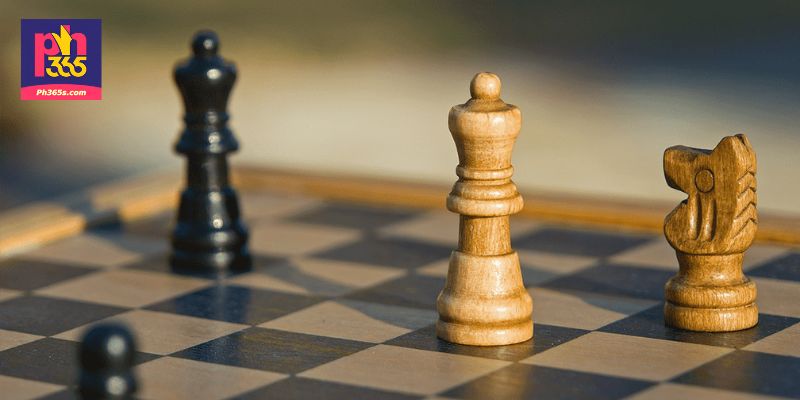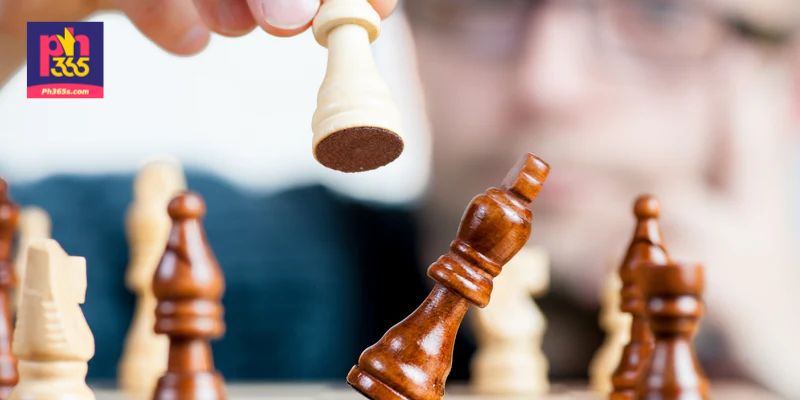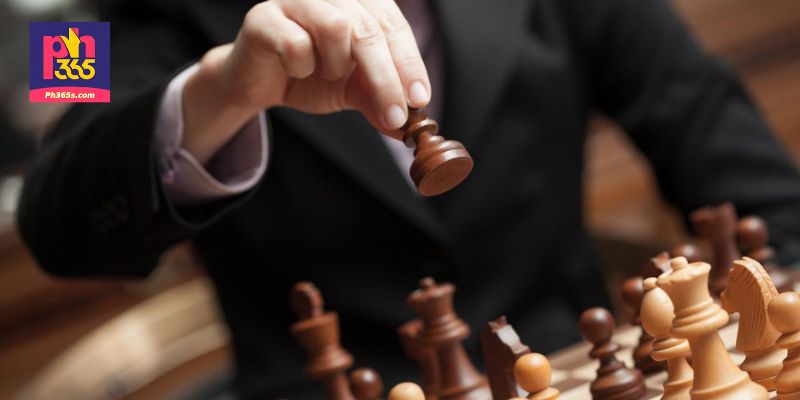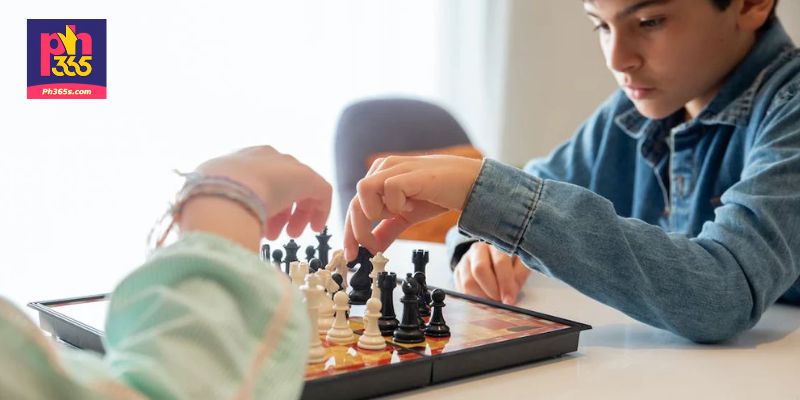Chess is one of the most intellectually demanding games in the world, requiring a mix of strategic planning, patience, and foresight. For beginners, however, it can be overwhelming to grasp all the nuances of the game. Many newcomers make the same mistakes, often hindering their progress. By identifying and avoiding these common pitfalls, beginners can quickly improve their chess skills and enjoy the game more fully.
In this article, we will discuss the top mistakes to avoid for beginner chess players and provide tips on how to enhance your game. Also, for those looking to take a break or refresh their minds, platforms like PH365 offer a variety of online games that can help develop the mental agility needed for chess.
Failing to Control the Center in Chess
One of the most critical concepts in chess is controlling the center of the board. Many beginners make the mistake of focusing on moving pieces to the edges or corners early on, neglecting the center. Controlling the central squares (d4, d5, e4, and e5) is essential because they provide greater mobility for your pieces and allow you to launch attacks more effectively.

Why Center Control Is Crucial for Chess Players
- Increased Piece Mobility: By controlling the center, your pieces (especially knights and bishops) can move more freely, giving you more tactical options.
- Greater Attack Potential: The center is where most attacks are launched from. Owning the center gives you the advantage to dominate the game and force your opponent into defensive positions.
How to Improve Your Center Control in Chess
- Develop Pieces Early: Instead of making unnecessary pawn moves, focus on bringing your knights and bishops toward the center early in the game. This allows you to exert influence over key squares.
- Avoid Moving the Same Piece Multiple Times: Beginners often waste valuable time moving the same piece in the opening. Develop your pieces efficiently to avoid wasting time.
Neglecting Piece Development in Chess
Another common mistake among beginner chess players is failing to develop all of their pieces in the opening phase of the game. Many beginners focus solely on the queen or make unnecessary pawn moves, which delays the development of essential pieces like the rooks, bishops, and knights.

The Importance of Piece Development in Chess
- Increased Control: Properly developed pieces help you control more squares on the board and provide greater flexibility in both defense and attack.
- Improved Positioning: Development sets you up for future moves and ensures that your pieces are well-positioned to handle threats and counterattacks.
How to Avoid Neglecting Piece Development in Chess
- Focus on Knights and Bishops: Develop your knights and bishops early to place them on key squares that control the center.
- Avoid Moving the Queen Early: Moving the queen too early can expose it to attacks. Instead, save it for later and focus on building a strong foundation with other pieces.
Ignoring King Safety in Chess
King safety is often overlooked by beginners, leading to many costly mistakes. Neglecting to castle early or leaving the king exposed can quickly result in a devastating attack by your opponent.

Why King Safety is Critical for Chess Players
- Preventing Immediate Checkmate: If your king is left exposed, your opponent can easily deliver a checkmate. Ensuring that your king is safe prevents such sudden losses.
- Better Defense: A secure king allows you to focus on attacking and strategizing without constantly worrying about your king’s vulnerability.
How to Keep Your King Safe in Chess
- Castle Early: Castling is an essential move to protect your king and activate your rook. Aim to castle as early as possible to get your king to a safer position.
- Avoid Weakening Your Pawn Structure: Don’t move too many pawns around your king unless necessary, as this can create gaps in your defense.
Overlooking Opponent’s Moves in Chess
A common mistake for beginner chess players is focusing only on their own plans without considering what their opponent is doing. This lack of awareness can lead to missed opportunities and unnecessary blunders.

Why Paying Attention to Your Opponent’s Moves is Key
- Avoiding Traps and Tactics: Your opponent may set up traps, forks, or pins that you might not notice if you’re solely focused on your own moves. Paying attention to their moves helps you avoid these tactics.
- Identifying Weaknesses: By observing your opponent’s strategy, you can find weaknesses in their position and capitalize on them.
How to Improve Your Awareness of Your Opponent’s Moves
- Pause and Reflect: Before making a move, ask yourself what your opponent’s move accomplishes. Are they attacking a piece? Are they preparing a tactical blow?
- Look for Threats: Always scan the board for any threats to your king or key pieces. Even if it’s not your turn, anticipate your opponent’s potential responses.
Trading Pieces Without Thought in Chess
Many beginners make the mistake of trading pieces without fully considering the consequences. Trading pieces can be beneficial if it leads to an advantageous position, but beginners often trade recklessly, which can result in losing valuable pieces unnecessarily.
The Importance of Thinking Before Trading Pieces in Chess
- Preserving Material Advantage: Trading pieces without consideration can lead to a loss in material, which may impact your chances of winning the game.
- Position Over Material: Sometimes, a position is more important than material. By trading pieces, you may end up weakening your position, even if you’re gaining material.
How to Make Smart Piece Trades in Chess
- Evaluate Each Trade: Before trading pieces, evaluate whether it will benefit your position. Will it leave your king exposed? Will you be able to use your remaining pieces effectively after the trade?
- Think Long-Term: Instead of just focusing on immediate gains, think about how the trade will affect the overall flow of the game.
Focusing Only on Immediate Threats in Chess
Another common mistake is focusing too much on defending against immediate threats and not thinking about long-term plans. While it’s important to protect your pieces, neglecting your overall strategy can prevent you from capitalizing on future opportunities.
Why Long-Term Planning Matters in Chess
- Creating a Winning Strategy: Chess is a game of strategy, and focusing on short-term threats without thinking about the bigger picture can lead to missed chances for victory.
- Positional Advantage: By planning several moves ahead, you can create a more advantageous position that leaves your opponent with limited options.
How to Balance Immediate Threats with Long-Term Strategy
- Create a Plan: Think about your next few moves and how they fit into your long-term strategy. Are you planning an attack or trying to gain a positional advantage?
- Stay Flexible: While it’s important to stick to your plan, be ready to adjust it based on your opponent’s moves. Flexibility is key to navigating the complexities of chess.
How Platforms Like Slotvip Can Improve Mental Agility
While chess requires a great deal of focus and strategy, taking breaks and refreshing your mind is essential. Platforms like Slotvip offer a variety of online games that can help you relax while still exercising your brain.
Mental Recharge with Slotvip
Casual games on Slotvip can offer a fun way to de-stress and recharge, helping you return to the chessboard with a refreshed mindset. Sometimes a brief distraction is all it takes to get back into the flow of the game.
Improve Focus and Agility
Games on Slotvip often involve quick thinking and decision-making, which can improve mental agility. These games challenge you to think fast, which can help enhance your ability to make decisions quickly and efficiently in chess.
Avoiding common mistakes is crucial for beginner chess players to improve and develop a strong foundation in the game. By focusing on controlling the center, developing your pieces, ensuring king safety, and paying attention to your opponent’s moves, you can significantly enhance your chess skills. Additionally, platforms like Slotvip can offer a refreshing break to sharpen your mental focus and help you stay sharp for your next chess match. Keep practicing, stay mindful of these mistakes, and enjoy the journey to becoming a better chess player.
